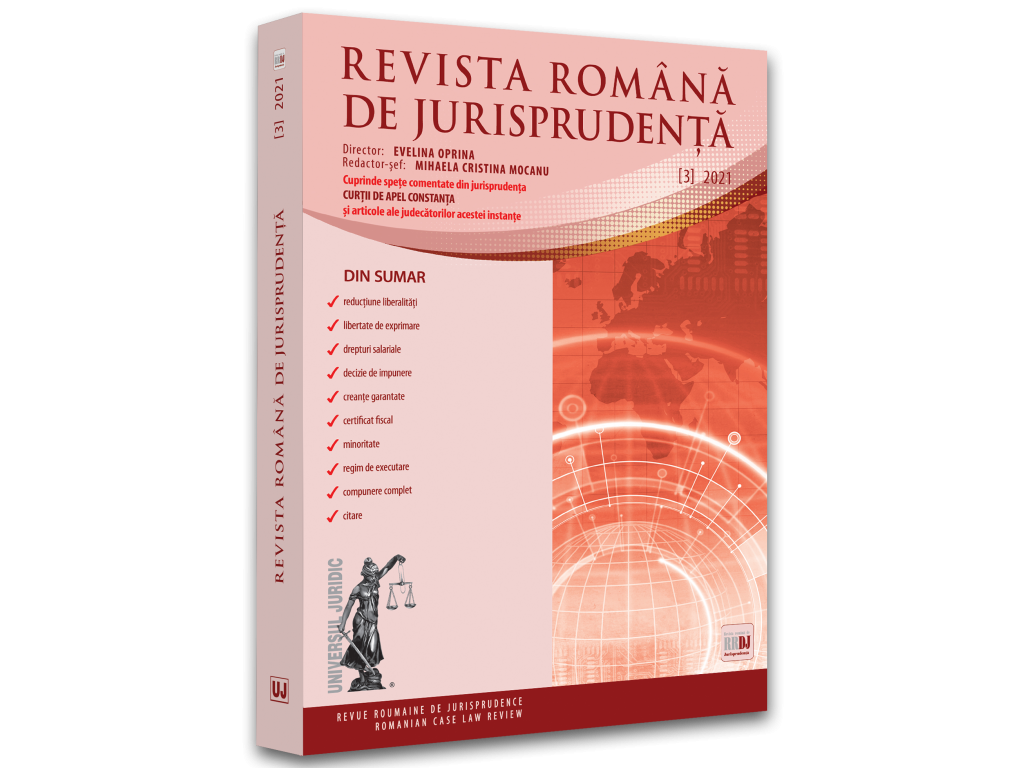3. Despăgubirile morale pentru prejudiciul de imagine cauzat prin postări pe Facebook. Condiţiile necesare antrenării răspunderii
3. Moral damages for image damage caused by Facebook posts. The conditions necessary for the training of liability
Author(s): Alina Gabriela JurubiţăSubject(s): Law, Constitution, Jurisprudence, Civil Law
Published by: Universul Juridic
Keywords: moral damages; damage caused by Facebook posts; EDO Convention;
Summary/Abstract: The exercise of the right to freedom of expression becomes an unlawful act only to the extent that this exercise exceeds the internal limits of this freedom, by committing an abuse of rights, resulting in the violation of the rights of another person. Given the duties and responsibilities inherent in the exercise of freedom of expression, the protection afforded by Article 10 of the Convention to persons who, like the defendant, engage in public debate is subject to the condition that they have acted in good faith so as to provide accurate and reliable information, while being permitted to resort to a certain amount of exaggeration, even provocation. As regards the balancing of the right to freedom of expression (Article 10 EDO Convention) and the right to respect for private life (Article 8 EDO Convention), the criteria arising from the Court's case law which are also relevant in this case are: the contribution of the articles to a debate of general interest, the reputation of the person concerned and the subject of the articles, the way in which the information was obtained, the content, form and repercussions of the publication of the articles, the good faith of the author of the allegations or proof of the truth. The plaintiff, as a public person, former and current mayor of the locality, cannot claim complete protection of the elements of his private life without this amounting to total exposure and a lack of possibility to defend himself if certain limits are exceeded. Being actively involved in the life of the municipality of which he was an inhabitant, the defendant did not seek to discredit the plaintiff by presenting purely subjective and factually unsubstantiated assessments, but was based on a monitoring and documentation activity designed to draw attention to the conditions in which a person in a public office carries out his duties. The focus in all articles posted fell on issues of general interest, not on the image of the plaintiff. The correct starting point in this case is that of a politician, in relation to whom the admissible criticisms are broader than in relation to a private individual.
Journal: Revista Română de Jurisprudenţă
- Issue Year: 2021
- Issue No: 03
- Page Range: 33-45
- Page Count: 13
- Language: Romanian
- Content File-PDF

